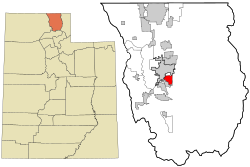The Importance of Beneficiary Designation In Estate Planning
Beneficiary designation is an important aspect of the estate planning
As a part of estate planning, it is important to carefully consider the beneficiary designations that will be attached to various assets. Unlike a will, which dictates the distribution of assets upon your death, a designation allows you to direct certain assets to specific beneficiaries at your discretion.
There are numerous different types of accounts that can have a beneficiary designated. These include bank and brokerage accounts, life insurance policies, and retirement plans. You may be able to designate a beneficiary for these accounts without actually filling out a form. If you choose to do so, you should follow the instructions from the company holding the account.
When you designate a beneficiary, it is important to make sure that you have named the correct person
A mistake can cause significant problems for the recipient. For example, if you name a minor as a beneficiary, they may not inherit the asset because you have assumed that they are legally old enough to inherit.
Beneficiary designations should be updated in tandem with changes in your own personal circumstances. Often, changes in life such as marriage, the birth of a child, or a divorce can affect the designations. Therefore, it is important to review and update your beneficiary designations at least once a year. This should be done to ensure that your loved ones are receiving the right assets.
The beneficiary designation is a blunt instrument, but you can take the time to thoughtfully design it. It should contain some key information about the assets, such as the name of the primary and secondary beneficiaries. In the event that the primary beneficiary dies, a secondary beneficiary will receive the account.
In addition, a well-executed beneficiary designation can help ensure that your assets go to the right people, regardless of how you named them. Many people neglect to fill out a beneficiary designation form for their assets. However, it is a crucial component of estate planning.
You should also designate a contingent beneficiary in case the primary one passes away before you do. While it is possible to name anyone as a beneficiary, it is a good idea to keep your list of potential beneficiaries to a minimum.
Beneficiary designations are also an excellent way to prevent assets from becoming taxable. If you have an investment account or a retirement plan, you should always designate a beneficiary. Do not name your children or grandchildren, however, as the primary beneficiary. Those who are left to the discretion of the asset manager could have to pay federal estate taxes.
Disclaimer: This is not legal advice and is simply an answer to a question and that if legal advice is sought to contact a licensed attorney in the appropriate jurisdiction.
Estate Planning Attorney Free Consultation
If you have any questions or in need a Estate Planning Attorney, we have the Best Attorneys in Utah. Please call this law firm for free consultation.
We help you with Estate Planning, Wills, Trusts, Power of Attorney, Health Care Directive, Estate Administration, Probate and More
When you need a Lawyer, contact this law firm:
Parklin Law
Providence, Utah
Jump to navigationJump to search
|
Providence, Utah
|
|
|---|---|

Location in Cache County and the state of Utah.
|
|
| Coordinates: 41°42′18″N 111°48′51″WCoordinates: 41°42′18″N 111°48′51″W | |
| Country | United States |
| State | Utah |
| County | Cache |
| Founded | April 20, 1859 |
| Government | |
| • Mayor | Kathleen Alder [1] |
| Area | |
| • Total | 3.88 sq mi (10.06 km2) |
| • Land | 3.88 sq mi (10.06 km2) |
| • Water | 0.00 sq mi (0.00 km2) |
| Elevation | 4,596 ft (1,401 m) |
| Population
(2010)
|
|
| • Total | 7,075 |
| • Estimate
(2019)[4]
|
7,780 |
| • Density | 2,003.61/sq mi (773.64/km2) |
| Time zone | UTC-7 (Mountain (MST)) |
| • Summer (DST) | UTC-6 (MDT) |
| ZIP code |
84332
|
| Area code | 435 |
| FIPS code | 49-62360[5] |
| GNIS feature ID | 1444657[3] |
| Website | www |
Providence is a city in Cache County, Utah, United States. The population was 7,075 at the 2010 census.[6] It is included in the Logan, Utah-Idaho Metropolitan Statistical Area.
The Importance Of Beneficiary Designation In Estate Planninghttps://t.co/bffGKWLeae
— Parklin Law (@VA_ParklinLaw) January 4, 2023


Comments are closed.